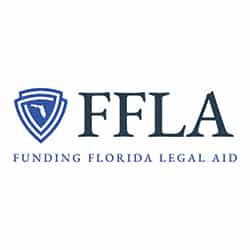by Gabrielle Davis
December 1, 2009

Collins Center Board of Trustees meeting, Tampa, Florida, September 23, 2009.
ORLANDO — Follow the path of the thousands of Florida juveniles who are incarcerated each year, and you’ll likely find that poverty, poor education and a difficult home life were the stepping stones that landed them behind bars.
These jailed youths often become “inmates-in-training,” who eventually reach a graduation of a different sort: straight to Florida’s adult prison system.
“We tend to throw children and people away, and we can’t afford to do that,” said April Young, vice president for justice initiatives with the Collins Center for Public Policy, citing that up to 60 percent of Florida’s incarcerated youth are in a pipeline to become adult prisoners. Juvenile justice and prison reform were the chief topics of discussion at the Collins Center for Public Policy’s Florida Justice Summit, held Nov. 16-17 in Tampa.
Co-sponsored by The Florida Bar Foundation, the Summit brought together nearly 300 law enforcement and justice officials, nonprofit organizations, business owners and legislator — all calling for an overhaul of the state’s overpopulated and expensive penal system. Additional funds for the Summit came from the Annie E. Casey Foundation and the Florida Department of Corrections.
A state prison costs about $100 million to build and an additional $25 to $30 million to operate annually. Meanwhile, the demand for prison beds is exacerbated by high recidivism rates, with a third of former inmates returning to custody within three years of their release, according to the Florida Department of Corrections.
Reform advocates argue that a small investment of state dollars in rehabilitation and job training programs in prison would result in fewer former inmates returning to state custody. An even smaller investment in diversion programs could prevent youth from entering the juvenile justice system in the first place, Young said.
“This is the question: Are we going to pour Florida’s future into corrections, or we going to invest in measures that improve our state?” Young said.
The Florida Bar Foundation is doing the latter.
This year the Foundation, through its Improvements in the Administration of Justice Grant Program, authorized up to $945,000 over three years to support a groundbreaking project designed to reduce the number of school referrals to the juvenile justice system.
The pilot project in the Escambia County School District will explore different strategies, including restorative justice practices such as school accountability boards, mediation and Saturday detention, to reduce the number of school children who are referred to law enforcement or are suspended or expelled for behavior problems that don’t pose a risk.
Department of Children and Families Secretary George Sheldon said education is the “safety valve” that could prevent most troubled youth from entering the system.
“Education is a critical piece to all of this, and I just don’t think we’re there yet,” said Sheldon, who was one of Summit’s featured speakers. “When I was in kindergarten I knew how to count to 10, I knew the alphabet, the difference between a circle and a square. Kids are coming into kindergarten without those basic skills and are falling further and further behind. We have to deal with that.” Without basic skills, many of those kids won’t receive their high school diploma, and it creates a “direct pipeline” to the criminal justice system, Sheldon said.
In the 2010 Juvenile Justice Reform Bill, the Department of Juvenile Justice is calling for an amendment to Florida statute 985.125, which currently authorizes only school and law enforcement officials to work with a state attorney to create diversion options for low-risk youth who enter the juvenile justice system. The amendment calls for adding the Department of Juvenile Justice, counties, municipalities and other organizations to the list of entities authorized to work with the state attorney on diversion programs, said Department of Juvenile Justice Legislative Director Jason Welty.
The amendment also requires that juveniles who are first-time misdemeanor offenders and youth ages nine and younger be put into diversion programs.
“We want to get them into a diversion program that keeps them from coming back,” Welty said.
The Justice Summit also explored rehabilitative and job-training programs that would better position inmates once they are released to re-enter their communities.
“We’re trying to pull together people who are interested in changing our justice system so that it costs less, but not just so it costs less, but so it produces people who can come back into our neighborhood and be citizens again,” said Collins Center President Rod Petrey.
“We’re not doing that now.”
Petrey said funding such programs isn’t being soft on crime, it’s being smart on crime by ultimately saving the state millions of dollars.
A panel of business leaders — including Barney Bishop, president and CEO of Associated Industries of Florida, and Tony Carvajal, executive vice president of the Florida Chamber Foundation — suggested ways for nonprofits and other organizations with training and rehabilitative programs for soon-to-be-released and former inmates to seek increased funding from the Legislature and private industry.
Summit attendee Barbara Richards is founder of Project180, a self-help residential, work program that teaches released prisoners skills that will help them thrive in their communities. After listening to the panelists, she said she will use a “business approach” when touting the benefits of the program.
Steve Seibert, Collins Center senior vice president and director of policy, said the next step is for the Summit’s steering committee to analyze what was learned during the two-day forum.
Texas state Rep. Jerry Madden, who was instrumental in the 2007 criminal justice reform initiatives in Texas, was another featured speaker at the Summit. Seibert said there are a few legislators hoping to invite Madden to share his ideas on justice reform with the Florida Legislature. The important thing is to get across a strong message to state decision makers that funding preventive and rehabilitative programs is a penny saved, not a penny wasted.
“Fundamentally, this is about our communities becoming safer,” Seibert said. “When ex-offenders return home, and almost all of them do, it is far better for us if they have received substance abuse or mental health treatment, job and life skills training, and basic education. These are things that need to be funded, because we will pay more later if we don’t.”


